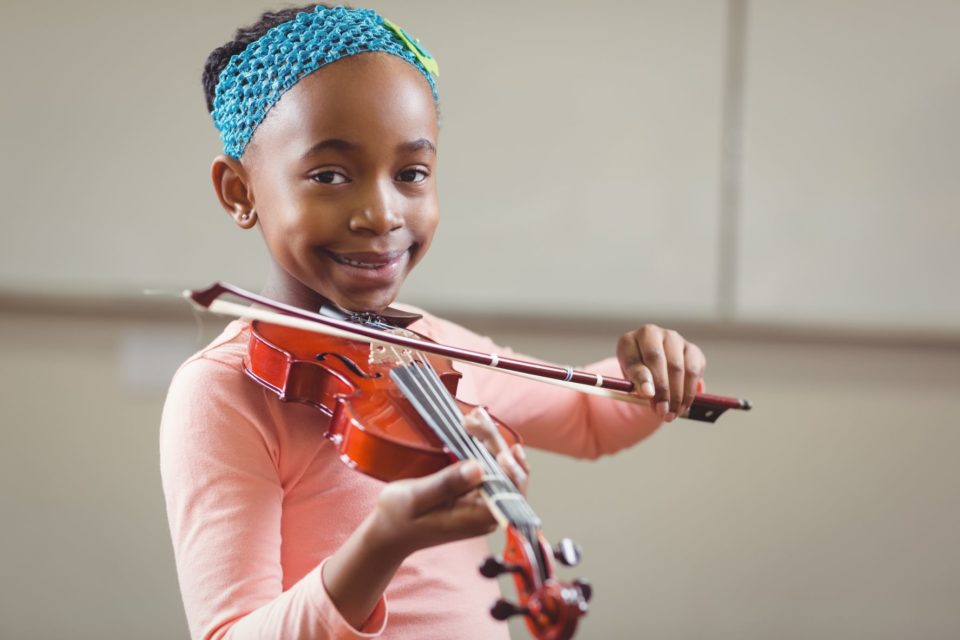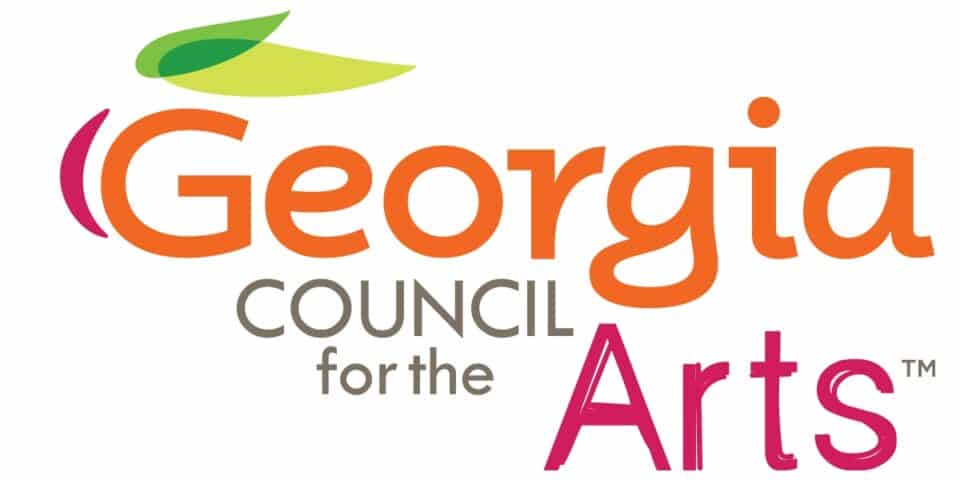
AthFest Educates awarded a special $35,000 grant for a multi-year afterschool orchestra program at Howard B. Stroud Elementary that is a partnership with the University of Georgia’s Community Music School (UGA CMS). The funds will be used to purchase instruments for the orchestra and pay music instructors from CMS. It will also cover the cost of transportation to get students home from the program. The project was started in part with a $6,700 gift from the 100 Women Who Care Athens chapter and has been sustained by a Georgia Council for the Arts Education Grant.
The project was born out of AthFest Educates’ desire to use some of its reserve funds for a larger project that would fall outside of its annual grant-making initiative, which caps each individual grant award at $5,000. The organization sent out a survey asking local teachers and youth development specialists what types of music and arts-based projects and programs were needed in Athens and to determine who is able to launch or grow those programs. Access to individualized and small-group instrument-specific lessons rose to the top.
Joy Smith, Music Educator at Howard B. Stroud Elementary wanted a quality afterschool student enrichment opportunity that the students at Stroud wouldn’t ordinarily have access to and dreamed of an afterschool orchestra program. At the same time, the UGA Community Music School wanted more opportunities to work with students at their school and bring Suzuki music instruction to students in the school district. AthFest Educates put the two together and offered the funding to make it happen. The collaboration will result in a program that will serve twelve students per grade for third, fourth and fifth grade students, starting with twelve third graders as the first student cohort. Students will receive two lessons per week after school for 20 weeks. The first participants for the AthFest Educates Afterschool Orchestra Program will be recruited this spring and students will start in fall 2021. Interested Stroud parents are encouraged to contact Joy Smith.
Kristin Jutras, Director of the UGA Community Music School, explained why programs like this are so important: “Besides being a very enjoyable experience, playing a musical instrument develops creativity and self-esteem, while boosting cognitive, physical, and emotional development in children. Unfortunately, not all children have transportation, or can afford music lessons, so we are excited about the opportunity to go out into the community to provide this experience for students who otherwise might not have access.”
Jutras added that, “The Suzuki Method is a child-centered, nurturing method, aimed at teaching the whole child through music. A foundational tenet of the method is ‘Character first, ability second.”
Through individual and group games and activities, students will develop skills such as leadership, personal responsibility, problem solving, discipline, and perseverance, along with foundational musical skills. Students will also develop leadership and performance skills, while learning to offer support and encouragement to others. Typically, Suzuki programs foster strong bonds among participants and the greater community. We expect this program to have a very positive effect on the school!”
AthFest Educates Executive Director, Jill Helme, said, “Building confidence with an instrument and learning to master an instrument takes lots of practice and guidance. That guidance often comes in the form of private lessons and instruction, which can be an expensive undertaking for a family. AthFest Educates wanted to open the door and give students the opportunity to access those lessons. Small group instruction and private lessons give students an opportunity to meet with their teacher, develop a bond, and together build their skill and in turn their confidence. Kids who feel confident also develop curiosity, are willing to try new things, and become more resilient.”
Helme added, “There is a correlation between learning music and learning how to learn and how to read. The fundamentals of all learning begin and develop at the elementary level. It is vitally important that all our young students develop the skills needed to be successful learners and music is an important part of developing those skills. We’re incredibly lucky we have donors and sponsors who believe in the importance of music and arts education and help us make these kinds of programs available to the children in our community.”
Smith said, “Music is a core piece of the educational curriculum, and especially important at the elementary level when students’ brains have the highest level of plasticity. Musical training creates neural pathways both within and across both hemispheres of the brain that facilitate learning in all other subject areas; quite literally, music education makes it easier for the brain to learn. Creating these neural pathways early provides more time to reap the benefits.”
The mission of Georgia Council for the Arts is to cultivate the growth of vibrant, thriving Georgia communities through the arts.
